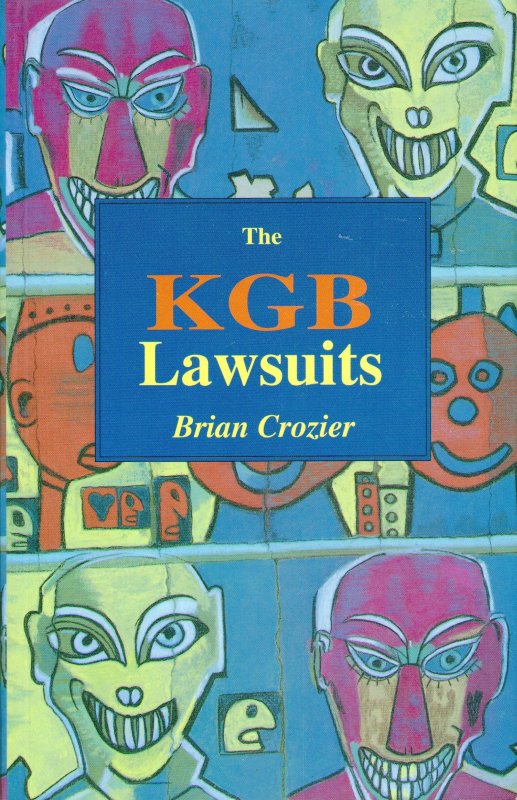Lobster Issue 4 (1984) £££
[…] to Kill the Pope Paul B. Henze, Croom Helm, London 1984 These two books cover the same ground, more or less, and have the same thesis: the KGB used the Bulgarians, who used Agca to shoot the Pope. Sterling’s is much the more impressive of them, better documented, more detailed and just generally more […]
Lobster Issue 40 (Winter 2000/1) £££
[…] is a Portuguese journalist writing a book about an almost unknown British spy? Recently I had to answer this same question from Igor Prelin, my favourite ex- KGB officer whom I first meet in Cannes, France, during the Television Market Fair of April 1994. After I met Igor Prelin in Cannes, I travelled to […]
Lobster Issue 41 (Summer 2001) £££
[…] many interpretations. West discusses this in the first, short, chapter and, sensibly, abandons it. The rest of the book is a re-presentation of the thesis that the KGB – or the Bulgarians (West never quite decides which one he is aiming at) shot the Pope; and an account of some of the U.S.’s many […]
Lobster Issue 25 (1993) £££
[…] ship Lobster since number 24. On Thursday, 19 November 1992 a journalist researching a piece on MI6 rang me. He said had been to talk to the KGB defector, Oleg Gordiefsky, who told him that the KGB were big fans of Lobster. Since Gordiefky defected in 1985, his conversations with the KGB about Lobster […]
Lobster Issue 33 (Summer 1997) £££
[…] a large team of researchers, with financial support from Goldsmith and additional aid from a large cast of (chiefly US) intelligence officers, tried to find proof of KGB influence that would satisfy a court. This is far too long to describe and I would merely summarise it thus. In the Spiegel and Ethnos cases […]
Lobster Issue 7 (1985) £££
Ex-British intelligence officer Richard Winch said KGB defectors regularly named 7 ‘MPs, trade union leaders and 1 former Conservative Cabinet Minister’ as KGB agents. (Daily Telegraph 24 and 27 September 1984) What, only 7? According to Frederick Forsyth’s ‘sources’ in the British labour movement there are 20. (See Times 31 August 1984). And doesn’t […]
Lobster Issue 29 (1995) £££
[…] rumours that the CIA had killed UN Secretary-General Dag Hammarskjold. On p. 170 he reports that ‘after the fall of the Salazar regime Portuguese working for the KGB drove a truck to the Security Ministry and hauled away a mountain of classified intelligence data’. This, presumably, is the ultimate source of the story, which […]
Lobster Issue 6 (1984) £££
[…] controversy that has raged for more than twenty years over the reliability of US intelligence. The CIA’s counterintelligence chief, James Angleton, was convinced that Goleniewski was a KGB plant or provocation agent, and distanced the Agency from the Polish defector. Nonetheless, Angleton came to accept the claim of a later defector, Anatoli Golitsyn, who […]
Lobster Issue 37 (Summer 1999) £££
[…] Russian historian, and Timothy Naftali, a ‘fellow in International Security Studies’ at Yale. It’s mainly about the Cuban Missile Crisis, drawing on what are described as declassified KGB and other Soviet intelligence materials. The Nation review was generally favourable, with the exception of references to a chapter entitled ‘Dallas and Moscow’ – ‘… according […]
Lobster Issue 57 (Summer 2009) £££
[…] but it is interesting marginalia nonetheless. Notably, former FBI agent Turner tells us: that the book may have resulted from contact between the Garrison inquiry and the KGB. Working for New Orleans DA Jim Garrison, Turner wondered what the Soviets knew about Oswald and sent someone to contact the KGB in Mexico City. (Innocent […]

